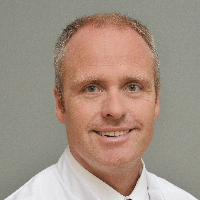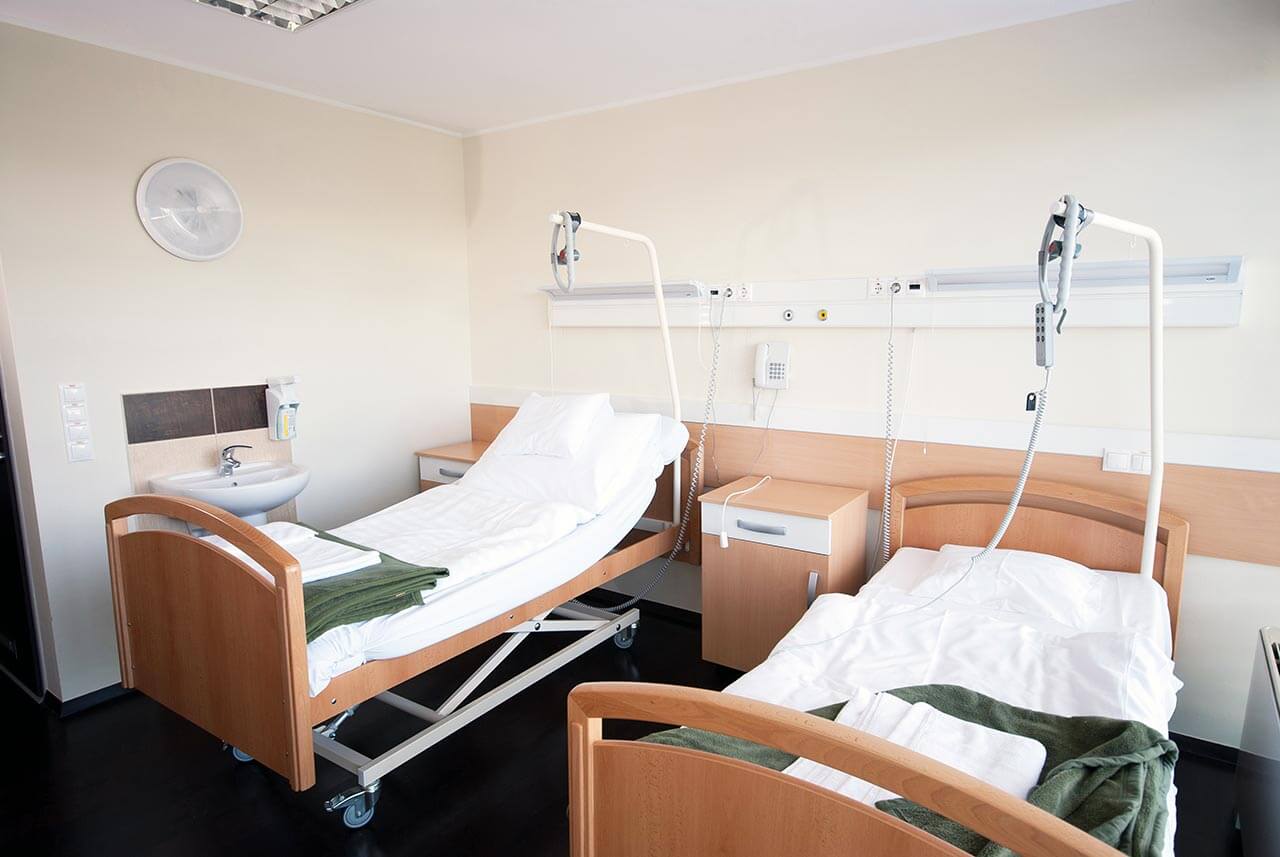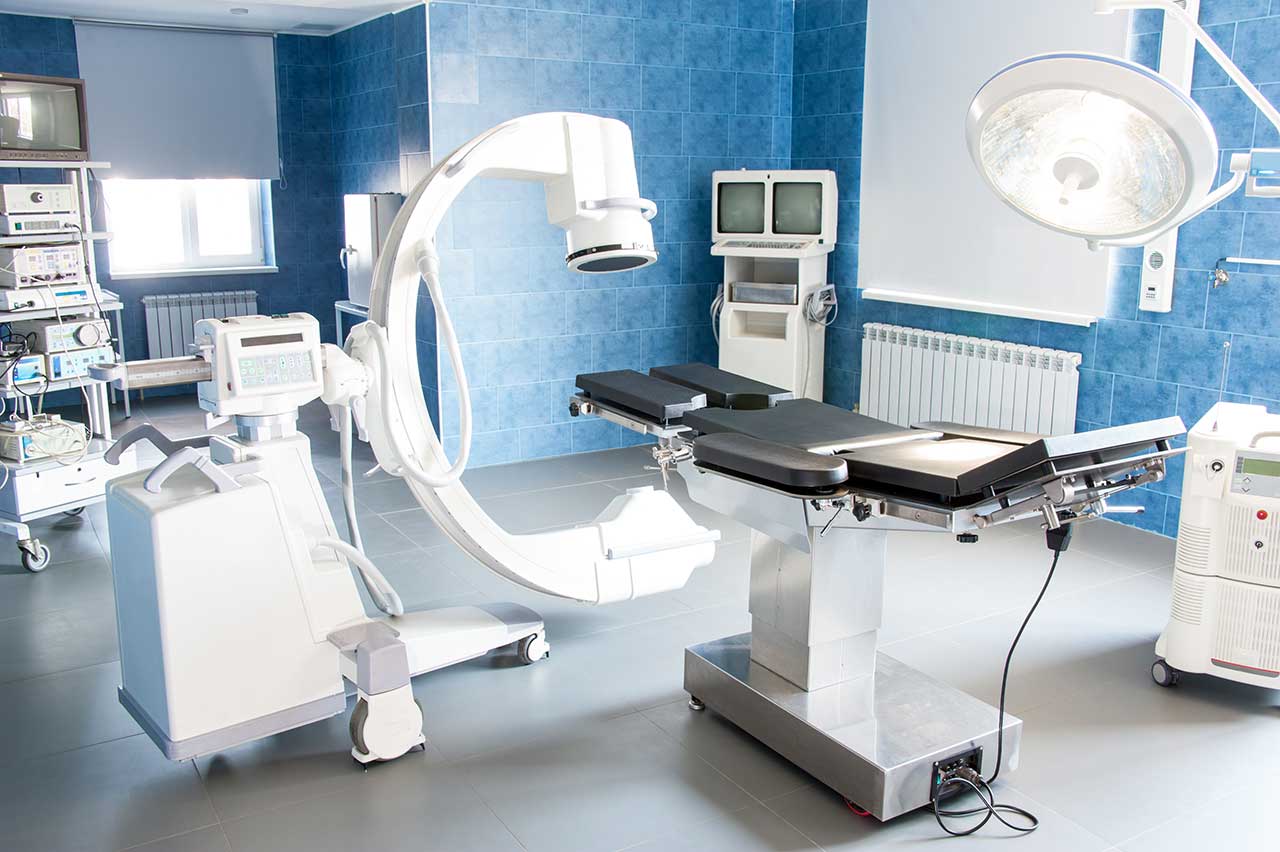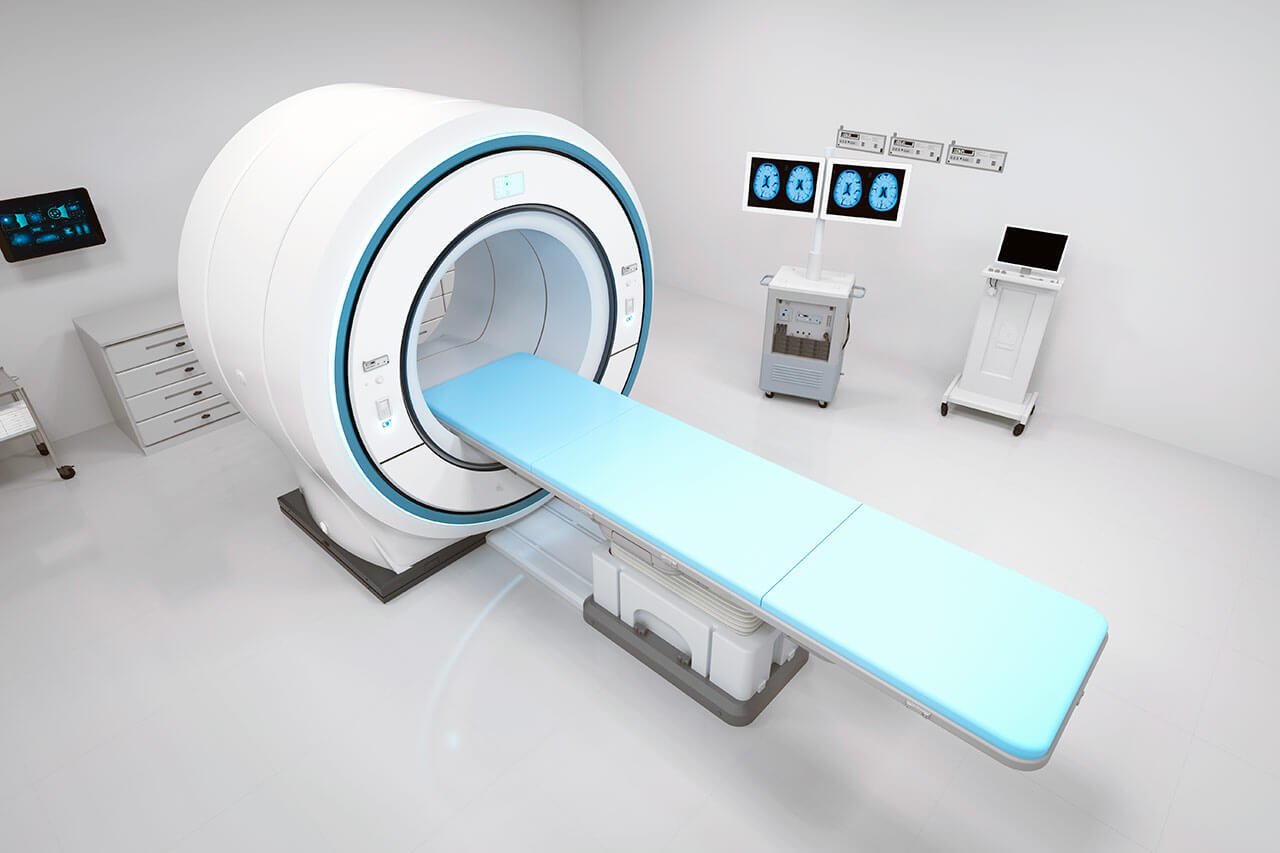
The program includes:
- Initial presentation in the clinic
- clinical history taking
- review of medical records
- physical examination
- laboratory tests:
- complete blood count
- general urine analysis
- biochemical analysis of blood
- TSH-basal, fT3, fT4
- tumor markers
- inflammation indicators (CRP, ESR)
- indicators of blood coagulation
- abdominal ultrasound scan
- CT scan/MRI or PET-CT of abdomen
- preoperative care
- cytoreductive surgery to remove visible tumors
inside the abdomen and HIPEC - histological and immunohistochemical
examination of removed tissues - symptomatic treatment
- cost of essential medicines
- nursing services
- stay in the hospital with a full board
- accommodation in a 2-bedroom ward
- elaboration of further recommendations
How program is carried out
During the first visit, the physician will conduct a clinical examination and go through the results of the available diagnostic tests. After that, you will undergo the necessary additional examination, such as the assessment of liver and kidney function, ultrasound scan and tomography of the abdominal organs. Based on the results of the examination, the physician will choose the surgical technique and the type of anesthesia. After that, preparation according to the preoperative standard will start.
Cytoreductive surgery begins with general anesthesia. The intervention is performed as open surgery, i.e. through the incision in the anterior abdominal wall, so that the surgeon can carefully examine the peritoneum and the surface of the abdominal organs. The surgeon removes affected by the malignant process ovaries, areas of the peritoneum and metastases in other internal organs. This stage of the operation can take several hours, since the overall effectiveness of the treatment depends on the completeness of the malignant tissues removal.
At the next stage of the operation, the surgeon inserts several catheters into the abdominal cavity. Through the catheters, a heated solution of a chemotherapy drug is pumped inside. The special system maintains the required temperature (42-43 degrees Celsius), pressure and circulation rate of the medicinal solution. The solution mechanically flushes out blood clots and remnants of malignant tissues, and a heated chemotherapy drug destroys micrometastases in internal organs and lymph nodes (micrometastases can’t be detected by the naked eye).
After 1-1.5 hours, the chemotherapy drug is removed from the abdominal cavity and the abdominal cavity is washed with saline. After that, the surgeon removes the catheters and sutures the incision of the anterior abdominal wall.
After the completion of the operation, you will be transferred to the ward of the intensive care unit, under the round-the-clock supervision of doctors and nurses. In 1-3 days after the operation, your drains will be removed and you will be transferred to a regular ward for further recovery. The whole treatment takes 10-12 days on average.
Finally, the attending physician will evaluate the results of control examinations, schedule the date of discharge from the hospital and give you detailed recommendations for further follow-up and treatment.
Required documents
- Medical records
- MRI/CT scan (not older than 3 months)
- Biopsy results (if available)
Service
You may also book:
 BookingHealth Price from:
BookingHealth Price from:
About the department
The Department of Gynecology and Obstetrics at the Sana Hospital Duisburg offers all services in the field of gynecology and obstetrics at the most advanced level. The department is headed by Prof. Dr. med. Markus Schmidt.
In the field of gynecology, the department covers the full range of gynecological operations, including surgery for women who want to have a child. There are performed extensive cancer surgical interventions, as well as prolapse and incontinence surgeries. The specialists of the department have all tested and advanced treatments for incontinence and organ prolapses.
As the Level I Perinatal Center, the Department of Gynecology and Obstetrics offers a family-oriented obstetric care with maximum safety in three comfortably furnished maternity wards. In cooperation with the nearby Department of Pediatrics, there are provided the best opportunities for high-risk pregnancies, for example, in case of delivery of premature babies, twins, newborns with congenital diseases and emergency cases.
The service range of the department in the field of gynecological surgery and sensology includes the following treatments:
- Incontinence and prolapse (Pelvic Floor Center)
- Benign uterine diseases: fibroids and menstrual disorders
- Benign diseases of the ovaries and fallopian tubes
- Endometriosis
- Adhesions and chronic lower abdominal pain
- Unwanted infertility (diagnosis and restoration of the reproductive function)
- Dysplasia (diseases of the cervix uteri and vulva)
- Gynecological oncology (cancer of the female genital organs)
- Benign and malignant diseases of the breast
The department offers the following special treatment methods:
- Minimally invasive surgery
- Laparoscopic surgery on the uterus: removal of fibroid knots, total or partial hysterectomy
- Laparoscopic surgery to repair organ prolapse, including uterine preservation surgery
- Laparoscopic surgery on the ovaries and fallopian tubes, including the removal of tumors and cysts, restoration of the reproductive function
- Laparoscopic surgery to remove adhesions and endometriosis, also in case of various preliminary operations
- Surgery with hysteroscopy: removal of fibroids and polyps (with organ preservation), correction of uterine malformations
- Minimally invasive treatments involving organ preservation due to the menstrual disorders: by removing the mucous membrane (hysteroscopy) or obliteration (Thermachoice)
- Laparoscopic cancer surgery in the early stages
- Surgery to restore reproductive function:
- In vitro fertilization (IVF or ICSI)
- Surgery to restore tubal patency (restoration of the reproductive function)
- Preservation of fertility in malignant diseases
- Outpatient gynecological counseling for both children and adults
The range of medical services of the department in the field of obstetrics and perinatal medicine includes:
- Family-oriented obstetric care
- Monitoring of high-risk pregnancies
- Prenatal diagnosis
- Invasive interventions, including amniocentesis, chorionic villus sampling, umbilical cord puncture
- Intrauterine therapy
- Medical care of premature infants
- Monitoring of multiple pregnancies
Curriculum vitae
Beruflicher Werdegang
- 1989 Abitur am Städtischen Gymnasium Erwitte
- 1989 - 1990 Allgemeiner Wehrdienst
- 1990 – 1996 Studium der Humanmedizin an der Universität Essen
- 1996 Erlaubnis zur vorübergehenden Ausübung des ärztlichen Berufs
- 1997 Promotion „Immunhistochemische Steroidhormonrezeptorbestimmung an mit GnRH-Agonisten vorbehandelten und unbehandelten Uterusmyomen“
- 1998 Approbation als Arzt
- 2008 Erhalt der venia legendi für das Fach „Gynäkologie und Geburtshilfe“ und Ernennung zum Privatdozenten Thema der Habilitationsschrift: „Evaluation ätiologischer und prädiktiver Faktoren bei Patientinnen mit Präeklampsie“
- 2011 Ernennung zum außerplanmäßigen Professor der Universität Duisburg-Essen
Berufliche Tätigkeit:
- 1996 – 1998 Arzt im Praktikum an der Universitätsfrauenklinik Essen
- 1998 –2003 Assistenzarzt an der Universitätsfrauenklinik Essen
- 2002 Anerkennung als Facharzt für Frauenheilkunde und Geburtshilfe
- 2003 Oberarzt an der Universitätsfrauenklinik Essen mit Schwerpunkt Geburtshilfe und Perinatalmedizin
- 2004 Anerkennung der Fakultativen Weiterbildung Spezielle Geburtshilfe und Perinatalmedizin
- 2007 Ärztlicher Leiter Perinatalzentrum
- 2007 Ltd. Oberarzt an der Universitätsfrauenklinik Essen
- 2008 Weiterbildungsermächtigung für den Schwerpunkt „Spezielle Geburtshilfe und Perinatalmedizin“
- seit Juni 2011 Chefarzt der Klinik für Frauenheilkunde und Geburtshilfe am Klinikum Duisburg
Photo of the doctor: (c) Sana Kliniken Duisburg
About hospital
The Sana Hospital Duisburg is a maximum care medical center with 678 beds and 17 specialized departments. With the very latest innovations and high quality patient care, the clinic works for the benefit of a person and their health. The hospital ranks among the leading clinics in the region. In 2013, the hospital treated 21,403 inpatients, 1,149 partially inpatients and 51,751 outpatients.
The hospital is the maximum care center, since almost all disciplines are represented here as independent departments. The departments specialize in the diagnosis and treatment of both common pathologies and specific diseases or groups of patients. The hospital provides its services for patients of all age groups, starting from the birth in the Department of Obstetrics, Pediatric and Adolescent Medicine, then in the departments for adults up to the treatment of elderly patients in the Department of Geriatrics. The hospital has a unique medical competence and medical centers with special equipment in order to ensure an optimal and multidisciplinary treatment.
The Hospital Duisburg is an academic teaching hospital at the University of Duisburg-Essen with the maximum care (Level 1) Perinatal Center, as well as the Neuro Center with a special focus in the field of oncology. The interdisciplinary Emergency Department, two Intensive Care Units and an Intermediate Care Station offer their services as well. In addition, the hospital has an interregional Stroke Unit with 8 monitored beds, the Unit for Early Neurological Rehabilitation (Level B) with 30 inpatient beds and the accredited Sleep Laboratory with 4 beds.
All activities of the hospital are focused on the patient with their worries and fears; great attention is paid to the patient’s life situation and history. All actions and efforts of the employees of the hospital are made to improve a personal health of each patient. The success rate of the hospital is manifested by satisfaction of both patients and their relatives.
Photo: (c) depositphotos
Accommodation in hospital
Patients rooms
The rooms in the Sana Clinic, Duisburg, meet the strict German standards. The essential safety equipment can be found in each patient room. There are also private bathrooms in all rooms. There are also the electric beds that can be adjusted according to the patient’s needs and habits. The orthopaedic mattresses on the beds provide adequate support for the spine during sleep. You can also use various devices in the room such as a laptop, unless you disturb the other patient in the room. Wi-Fi connection can be provided upon request.
The clinic offers single and double rooms. If you choose a single room, an accompanying person will be able to stay with you. A double room is shared with a patient of the same gender.
The enhanced comfort rooms are equipped with a safety box, a fridge and upholstered furniture.
Meals and Menus
The patient and the accompanying person are offered a daily choice of three menus. If you are on a specific diet for any reason, you will be offered an individual menu. Please inform the medical staff about your dietary preferences prior to the treatment.
Further details
Standard rooms include:
Religion
Christian priests are available for the patients at any time. Representatives of other religions may be requested at any time.
Accompanying person
Your companion may stay with you in your room or at a hotel of your choice during the fixed program.
Hotel
You may stay at the hotel during the outpatient program. Our employees will support you for selecting the best option.




